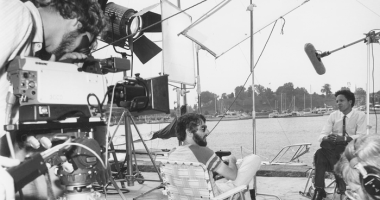ARVE Error: src mismatch
url: https://www.youtube.com/watch?v=gNgSQ4AFHAw
src in: https://www.youtube-nocookie.com/embed/gNgSQ4AFHAw?feature=oembed&enablejsapi=1&origin=https://lab.cccb.org
src gen: https://www.youtube-nocookie.com/embed/gNgSQ4AFHAwActual comparison
url: https://www.youtube.com/watch?v=gNgSQ4AFHAw
src in: https://www.youtube-nocookie.com/embed/gNgSQ4AFHAw?enablejsapi=1&origin=https%3A%2F%2Flab.cccb.org
src gen: https://www.youtube-nocookie.com/embed/gNgSQ4AFHAw
Lea Ypi was eleven years old when her country, Albania, began to transition from communism to a liberal democratic system. With the fall of the regime, the idea of having grown up in a free country also evaporated, while at the same time she realised that the freedom of capitalism was another false promise. It was from this dilemma that she began to construct her philosophical idea of freedom.
Lea Ypi left Albania in 1997, before she turned eighteen. She went to Italy on a scholarship, which she won thanks to her excellent high school results. She would return to Albania from time to time, maintaining her ties with her native country but living far from its borders. After studying Philosophy and Literature in Rome, at Sapienza University, she continued her studies at the European University Institute in Florence, where she received her Doctorate in Philosophy. She then moved on, as a visiting lecturer and researcher, to the Sorbonne, Frankfurt, Berlin and then Oxford, where she was awarded an important prize for her post-doctoral work. She currently teaches Political Theory at the London School of Economics and Political Science as well as at the Australian National University, where she is an Honorary Professor. In addition, she has become a point of reference for left-wing thought, not only in the UK, but globally. To say that her career is impressive would be an understatement.
I met Lea Ypi at the Tirana Book Fair in 2021. “Simon Critchley or Owen Jones?” I asked her over coffee, as I tried to place her on my ideological map of British leftism. “Owen Jones”, she replied immediately. Driven by curiosity, I continued asking her questions about her life and ideas, as if it were a prelude to a journalistic interview. Among Albanians, let alone those abroad, it is very rare to find someone who is unashamedly left-wing in the way we understand this notion in Western Europe. It would be tantamount to being considered a communist, something which has particularly negative connotations given the country’s totalitarian past. So it was, a couple of days later, when we were both invited to a dinner with Edi Rama, the Albanian Prime Minister, he asked me if I knew that Lea was a communist, half-jokingly trying to provoke a debate between the two of us. However, despite our differences, the focus of the discussion soon shifted, leading to a heated debate between Lea Ypi and the leader of what is considered the left-wing in Albania, as in other post-communist countries.
But Lea Ypi’s ideological stance seems even more atypical if we look at it in relation to her family background, which among Albanians is a major factor in determining a person’s ideology. Her great-grandfather, Xhafer Ypi, was Prime Minister in the early 1920s and Chief Inspector of the Royal Court during the monarchy established in 1925, until the occupation of Albania by Mussolini’s Italy in 1939. Ypi then became regent and, in this capacity, handed over the Albanian crown to the Italian King Victor Emmanuel III, before becoming Minister of Justice in the first collaborationist government. This political biography cast a very long shadow over his descendants, generation after generation, in the form of collective discrimination of his son’s family, including imprisonment, and that of his son’s son, Lea’s father. In Albania, during Stalinism, this was the norm – it was called the class struggle, and the word “biography” meant family background and affiliation. It was a kind of invisible apartheid, which meant, among other things, being avoided by others as if you were carrying a contagious disease, making it advisable to avoid you to a degree determined by your family proximity to the “patient zero”. Lea’s mother’s family also belonged to this category, since the bond of marriage should not normally cross the dividing line of discrimination. Although she did not know it, being branded a class enemy was the fate that also awaited Lea within this regime. When things started to change in 1990 she was eleven years old, and to protect her psychologically, and even to protect themselves should their daughter’s tongue start to wag, Lea’s parents had spared her this kind of knowledge, giving her a political education in accordance with the rules. And she believed that she lived in the only free country in the world, as she recounts in her autofiction novel, Free: Coming of Age at the End of History. With the fall of the regime, which was now universally condemned, Lea discovered that the matter of freedom in Albania had been a big lie. However, it didn’t take her long to realise that the freedom promised by the newly implemented capitalism was simply a new deception. This two-fold experience, of communist totalitarianism and unbridled capitalism, this double dose of deception, seems important in explaining Lea Ypi’s leftism, something that has led to her being branded a traitor and a class enemy, this time from the pre-assigned ideological position of people who, during the old regime, were considered class enemies.
Rejecting both systems, and as if to rescue the stolen dream of her childhood and deal with the double disillusionment, when she was a university student, Lea Ypi found support in Marxist thought. Meanwhile, she fell in love with the philosophy of Immanuel Kant, fascinated, it seems, by his impeccable logic. It was precisely through this philosophy and, more specifically, through Kantian ethics of duty, that she built up her conception of freedom, which lies at the heart of her political thought. It is a conception that is “in many ways inspired by the work of Kant,” she says in this interview. Freedom as something inseparable from responsibility towards others, towards society. It is what she calls the “moral social idea of freedom,” or “moral relational idea of freedom.” At the same time, although she disagrees with the criticism of the Kantian understanding of duty as being too formalist and abstract, she tries to take a step further by referring to the Marxist tradition and other progressive currents of the twentieth century. In another interview in the newspaper El País, referring to her years in Albania during the post-communist period, Lea Ypi says that she “did not feel free.” However, her idea of freedom is not reduced to something purely subjective – the root lies within us, “as an internal moral ideal,” but, in order to unfold, it needs suitable external conditions. This could be defined as democracy with social justice, which, in turn, would be an expression of our moral sense of responsibility.
And what about literature? What is its relationship with Lea Ypi’s theoretical thought? In another conversation, during the Turin Book Fair last year, she told me that she often feels that philosophy is an obstacle in the process of literary creation. I think it is more like a fruitful tension between her two types of creative activity, both of which are centred on the idea of freedom. And, as is shown by her book, translated into more than thirty languages and critically acclaimed, her literary career is at least as successful as her theoretical work. But Lea has no fear of so much celebrity. Probably because she attaches no importance to it. And perhaps because she has held on to the nature and naturalness of the Lea from the pages of her book.




Leave a comment